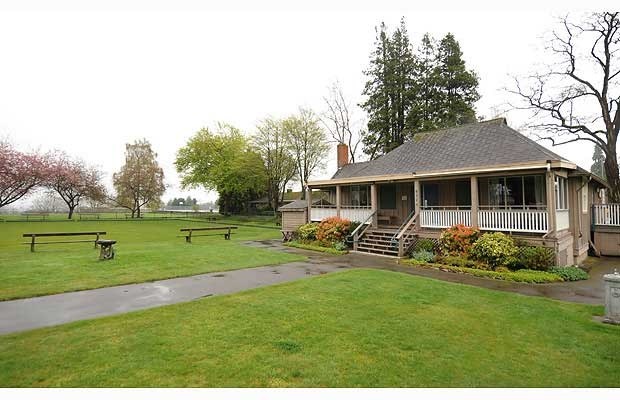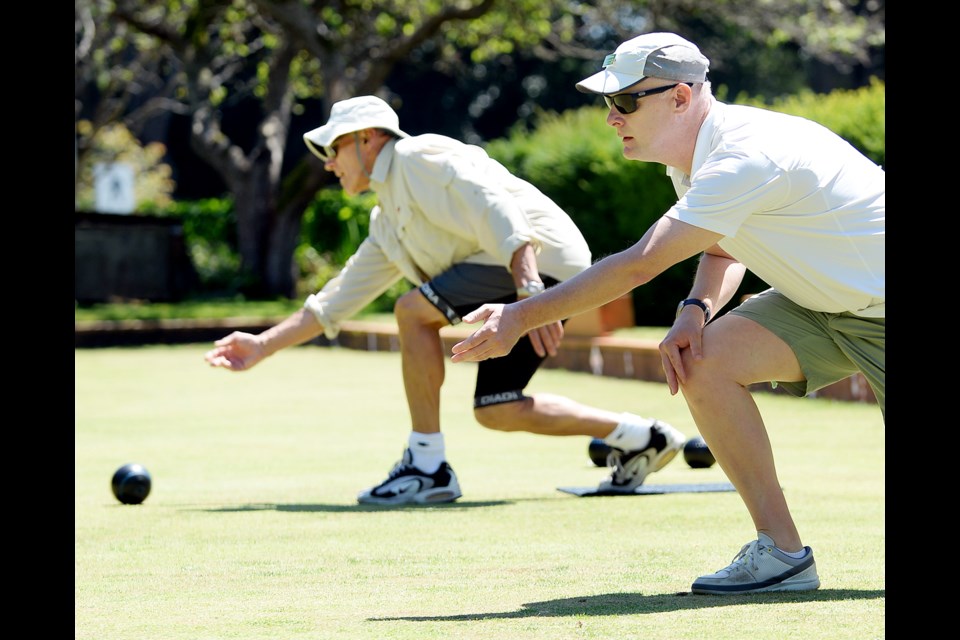As Stanley Park Lawn Bowling Club celebrated its 100th anniversary last weekend, Heritage Vancouver released its annual Top 10 watch list, which names lawn bowling clubs and greens as being among the “historic urban landscapes” that are threatened.
It’s the first time clubs and greens have made it into the ranking — they landed in the 10th position.
Heritage Vancouver is concerned what would happen to the historic clubhouses, greens and their cultural history if membership falls to the point that a club can’t be maintained.
Stanley Park Lawn Bowling Club has so far avoided that fate by attracting younger players.
Member Lois Goodeve, who didn’t realize lawn bowling clubs made the watch list, said her club’s numbers have almost doubled in the past four years and it’s in a “huge resurgence.”
It boasts 270 bowlers and 80 social members making it the largest lawn bowling club in Canada. Half of its bowlers are now under the age of 65. Most, but not all, are West Enders.
Goodeve said it enjoyed a large influx thanks to a LGBT curling group whose members joined the club. It also has more evening and weekend leagues, instead of just afternoon ones, which attracts the younger crowd.
“[The club] is very important to our community because it’s a social place. We’re there through the summer almost every day of the week,” said Goodeve. “People meet each other and experience the sport, so it’s a physical activity, and we have a lot of social activities. It’s a huge part of our life.”
She’s been a member for 12 years and said she can’t walk down the street without meeting someone she knows from the club.
Not all clubs are growing. Goodeve noted that the Vancouver South Bowls Club, which was small, folded this year, although she’s heard a group may be trying to revive it.
She suspects it’s tough for some clubs to keep going, while the Stanley Park club’s location means it’s “blessed” with more of a working population and a younger one. It embraces the LGBT community and Goodeve said it’s also very active in pursuing new members.
The Vancouver Park Board confirmed the Vancouver South club folded in the summer of 2016. The building that housed the club is more than 50 years old. The Kensington Community Centre Association uses the second floor of the building. There have been some informal enquiries from groups that would like to use the lawn bowling club’s space but the building is in need of “significant work that would have to be factored into future usage decisions,” according to the park board.
Heritage Vancouver says lawn bowling clubs “speak to Vancouver’s social, cultural and sports history, and provide green community oases and a strong connection to the past.”
While lawn bowling sites may not be specifically threatened, “a lack of recognition of both their built and cultural heritage means that these precious and beautifully-maintained sites could face future threats from changing park policies or leases.”
At this point, only one Vancouver club — the Terminal City Lawn Bowling Club at 3025 Fir St. — is on the Vancouver Heritage Register.
Heritage Vancouver recommends six lawn bowling clubs be added to the heritage register “to acknowledge the strong sense of community created by one of Vancouver’s long-term sporting activities.” Those clubs include Stanley Park Lawn Bowling Club, West Point Grey Lawn Bowling Club, Dunbar Lawn Bowling Club, Vancouver South Bowls Club and Vancouver Bowling Club.

This move wouldn’t provide legal protection (although there are some restrictions for “A” designated sites) but such recognition is seen as the initial step to ensure they don’t just disappear — it would identify them as having historic significance, which could trigger a heritage review if there is a change in their situation. It also sends a message to the park board that they should respect their heritage value.
Bill Yuen, a spokesperson for Heritage Vancouver, calls it an “awareness tool.”
“If there was a development or demolition of something on site, city staff would be alerted that the site is on the register as well as its significance,” he explained. “The property owner who wants to do something on the site would most likely have a conversation with staff on what that significance of the site is.”
In an effort to keep the clubs going, Heritage Vancouver also encourages Vancouverites to join and suggests those who are already members to research and document their histories. West Point Grey Lawn Bowling Clubs, for instance, has a collection of archival material dating back to 1921 at the City of Vancouver Archives.
@naoibh



